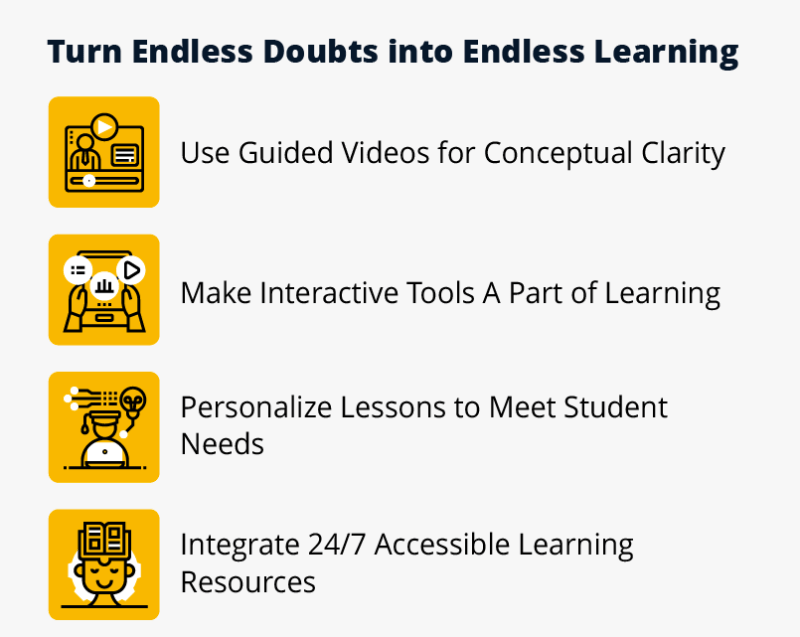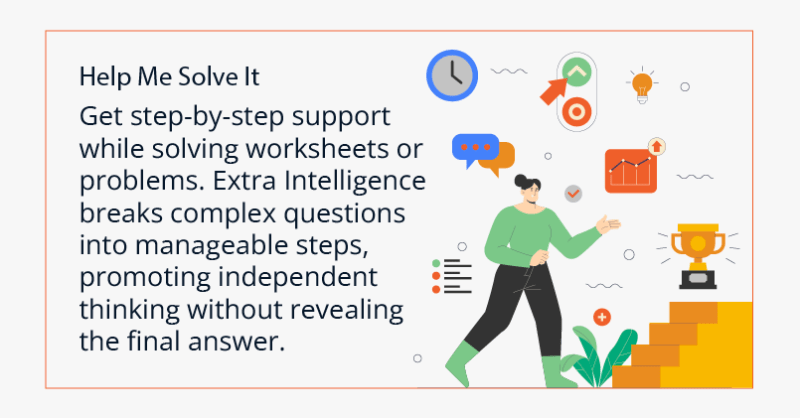
Ever finish a class feeling proud, only to face a flood of ‘I didn’t get this’ the next day?
Post-class doubts are a reality in every school. But what if students could resolve most of these themselves? Building self-learning skills not only saves teachers’ time but also cultivates confident, independent learners.
The truth is, teaching doesn’t stop when the bell rings, unless you give your students the tools to keep learning on their own. Ready to turn your learners into doubt-solvers? Let’s break it down.

By cultivating self-learning skills, you not only reduce repetitive questions but also help students grow into independent thinkers. Every student learns differently - some need visuals, others thrive on practice. That’s where tech steps in. With personalized self-learning tools, students can revisit tricky topics at their own pace, fill learning gaps, and strengthen problem-solving skills.
Here are four simple yet powerful techniques to build self-learning skills in students:
Teach Students to Ask ‘Why’ Before ‘How’
Ask students to pause and reflect after every lesson. Simple journaling or mind maps help them process concepts independently, making knowledge stick. This habit turns doubts into discoveries, pushing learners to think critically before seeking external help.
Break Problems into Bite-Sized Wins
Instead of giving instant answers, guide students with prompts and hints. Encourage them to try different approaches first. The Help Me Solve It feature, powered by Extra Intelligence's, breaks tricky problems into steps, fostering independent thinking, analytical skills, and resilience, turning passive learners into confident, self-reliant problem-solvers.
Empower Students with The Right Tech Buddy
Leverage digital tools that adapt to each learner’s pace. Interactive quizzes, videos, and instant feedback help students revisit difficult topics anytime. With Instant Doubt Solver, powered by Extra Intelligence's, doubts are resolved in real time with AI-driven support, empowering students to learn independently, practice confidently, and become true self-learners beyond the classroom.
Make Reflection A Daily Ritual
Create spaces for collaborative study by pairing stronger students with peers who need support. Peer teaching not only boosts confidence but also encourages accountability. It builds a culture where students learn from each other and grow together as independent thinkers.
At the end of the day, it’s not just about teaching a syllabus, it’s about equipping students with the skills to learn beyond the classroom. By nurturing self-learning habits, you empower them to take charge, ask better questions, and grow into curious, capable individuals.
Start small, stay consistent, and watch your students grow into independent learners who own their journey.



